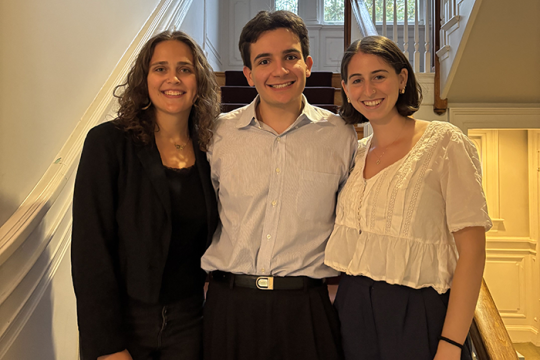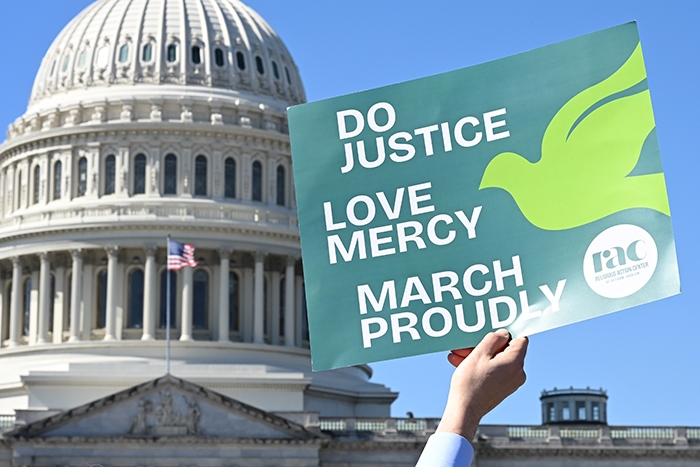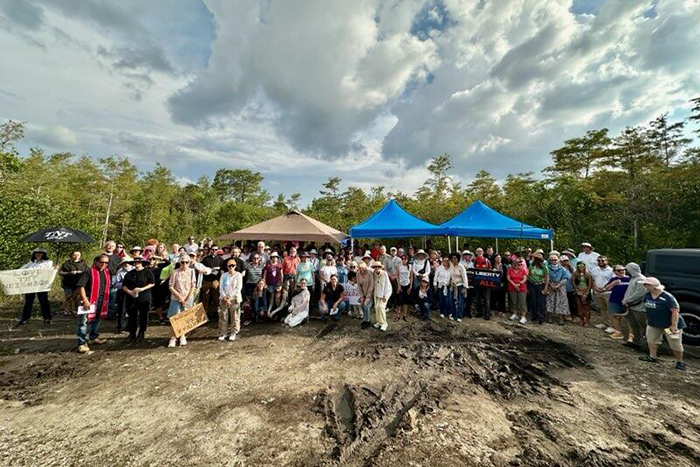
There are moments when the news doesn’t just make us uncomfortable. It unsettles us, reverberates in our bones, interrupts our Shabbat peace.
This is one of those moments.
Just over an hour from where we live, a migrant detention center was built in the swamps of the Everglades. People quickly nicknamed it “Alligator Alcatraz.” Some even sold merchandise with the name, as if it were a tourist attraction. But we must call it what it is: a detention camp.
It is a place where men, women, and children — many fleeing violence or poverty — are confined behind barbed wire, without adequate food, water, medical care, or access to family, friends, or lawyers. It is trauma and dehumanization made into policy. And it is happening here, in South Florida.
Our congregation recently brought a bus to bear witness at this site. It was Rosh Hodesh Elul, a time of introspection and preparation for the High Holy Days. By the time you read this, the camp may already have been moved. But whether it sits in the Everglades or elsewhere, the moral outrage is the same: people are being warehoused in unsafe, degrading conditions.
When I first heard about this center, I thought of my own grandparents. They were born in Europe, citizens of their country — until one day, the laws changed. Suddenly they were “foreign.” “Other.” Stripped of citizenship. Shut out of safe havens. Sent to camps.
What is happening in Florida today is not the Holocaust. These are not extermination camps. But we would be dangerously wrong to pretend there is no connection at all. History teaches us how quickly fear, scapegoating, and nationalism can escalate when good people remain silent.
Jewish tradition offers us three ways of leading in a time of moral crisis.
- The Leadership of Imagination and Justice
The prophet Isaiah declared: “Learn to do good; seek justice, rescue the oppressed, defend the orphan, plead for the widow” (Isaiah 1:17). Justice in Judaism has never meant simply following the rules. It means daring to imagine a world more aligned with God’s compassion. To show leadership now means saying: this detention camp does not reflect the values we aspire to — as Jews, as Americans, as human beings created b’tzelem Elohim (in God’s image). We must imagine and demand better.
- The Leadership of Moral Urgency
The Talmud teaches: “Whoever is able to protest against wrongdoing and does not, is held responsible for it” (Shabbat 54b). There are times when waiting is complicity. There are times when moral urgency demands we say: “This cannot continue. Not in our name.” To respond to Alligator Alcatraz means recognizing that silence is not neutrality — it is surrender.
- The Leadership of Steadfast Presence
The rabbis of Pirkei Avot teach: “It is not your responsibility to finish the work, but neither are you free to desist from it” (Avot 2:16). Jewish leadership is not only about bold vision or fiery protest — it is also about persistence. We need those who will keep showing up when the cameras leave, who will walk alongside immigrant communities year after year, who will not abandon the work when it feels overwhelming.
Together, these three teachings offer us a map: vision, urgency, and perseverance. We need all three.
The Torah commands: “You shall not oppress the stranger, for you were strangers in the land of Egypt” (Ex. 23:9). “Justice, justice shall you pursue” (Deut. 16:20). Every human being is created b’tzelem Elohim (Sanhedrin 37a). To uphold these values, we must bear witness and refuse silence.
That is why we went to “Alligator Alcatraz.” That is why we will keep showing up. The location may change, but the responsibility does not.
I believe how we respond now will echo for years — not only for the people behind those fences, but for who we become as a community. Let us be the generation that remembered, that refused silence, that acted with courage, vision, and love.
Related Posts
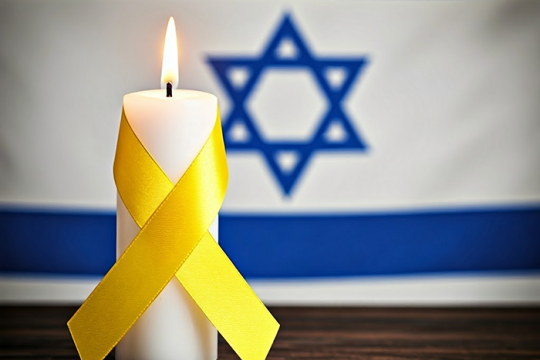
Prayers and Resources in Hopeful Anticipation for the Release of the Hostages
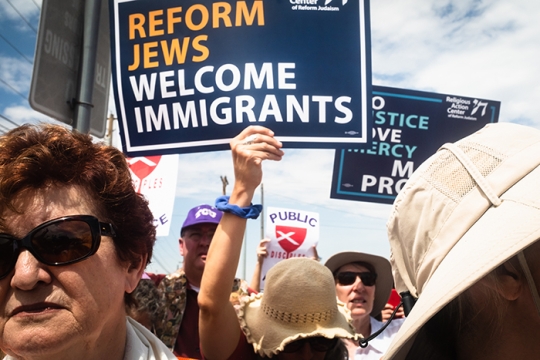
Join Reform Jews of Massachusetts to Support the Dignity not Deportations Campaign!
